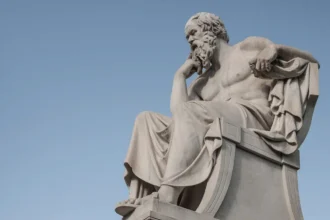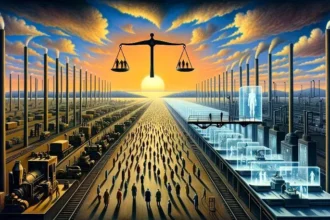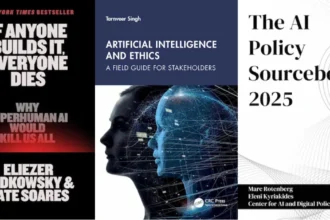Diplomacy, the age-old art of negotiation, is witnessing a transformative phase with the integration of artificial intelligence. Historically, diplomats relied on human intelligence, intuition, and interpersonal skills to foster international cooperation. Today, AI augments these skills, providing data-driven insights that can preempt conflicts and foster global harmony.
Consider the potential of AI in monitoring global sentiments. By analyzing social media trends, news, and public discourses, AI can gauge the mood of nations, potentially predicting and averting diplomatic crises. Furthermore, AI-driven tools, like real-time translators, bridge language barriers, ensuring clearer communication during international dialogues.
However, this digital renaissance in diplomacy isn’t without its pitfalls. Over-reliance on AI might overshadow the nuanced understanding that human diplomats bring. Data biases could skew AI insights, leading to misinformed diplomatic decisions.
The Digital Ambassador: AI’s Role in Diplomacy
For centuries, ambassadors have stood as symbols of a nation’s values, culture, and intentions. Today, however, a new envoy emerges: artificial intelligence. This “Digital Ambassador” is transforming the very essence of global communication, collaboration, and negotiation.
The essence of diplomacy often lies in human attributes: empathy, trust, and intuition. An overemphasis on AI insights risks sidelining these crucial nuances.
Harnessing the power of AI, diplomats can swiftly analyze vast data troves. Machine learning algorithms meticulously comb through global news, social media chatter, and economic trends. They detect emerging patterns, offering insights into potential geopolitical shifts or looming international tensions. This predictive edge equips diplomats with the foresight to strategize effectively, ensuring they remain ahead in their global pursuits.
Beyond just data analysis, AI is revolutionizing the practical facets of diplomacy. Organizing international summits, traditionally a logistical challenge, becomes streamlined with AI’s precision. Automated scheduling tools, considering factors like time zones and historical date significance, ensure efficient meeting setups.
Language, once a barrier in diplomacy, is now bridged effortlessly with AI-driven translation tools. These innovations guarantee that every nuance, cultural reference, and intention is conveyed with clarity, fostering trust and understanding.
Furthermore, the rise of AI-enhanced virtual meeting platforms offers a near-authentic experience, replicating face-to-face interactions. They can even showcase backgrounds adorned with national symbols, adding a layer of personalization and mutual respect to digital exchanges.
AI’s Double-Edged Sword
Artificial intelligence, a beacon of human ingenuity, offers groundbreaking solutions in many fields, diplomacy included. Yet, with its vast potential come inherent challenges, especially in the delicate realm of international relations.
Without comprehensive oversight and a deep understanding of AI’s decision-making, there’s potential for undue reliance on possibly flawed algorithms.
A primary concern is data bias. AI’s effectiveness hinges on its training data. Should this data carry biases, the AI might amplify them. Imagine an AI trained on news with a specific political slant. Its interpretation of global events could tilt towards that bias, potentially misguiding diplomatic actions and sparking unintended tensions.
The essence of diplomacy often lies in human attributes: empathy, trust, and intuition. An overemphasis on AI insights risks sidelining these crucial nuances. While machines offer data-backed advice, they lack the ability to sense a negotiation’s emotional undertones or the subtle implications in a diplomat’s statement.
Moreover, questions arise about AI’s transparency and accountability. How can we ensure AI-driven recommendations aren’t influenced or tampered with? Without comprehensive oversight and a deep understanding of AI’s decision-making, there’s potential for undue reliance on possibly flawed algorithms.
Yet, the picture isn’t entirely grim. Acknowledging these hurdles paves the way for solutions. Rigorous data checks, transparent AI processes, and a harmonious human-AI partnership can help navigate the challenges, ensuring diplomacy remains both innovative and human-centric.
AI Beyond Borders: Diplomacy in a Connected World
Artificial intelligence’s global footprint reshapes diplomatic strategies and interactions across nations, presenting a unique blend of opportunities and challenges.
A silver lining in AI’s worldwide influence is the door it opens for international collaboration. Imagine countries uniting to exchange AI insights, research, and technological breakthroughs. Such partnerships could birth universally endorsed AI tools, fine-tuned for diplomatic tasks, from treaty evaluations to global communications.
Diplomacy, steeped in tradition, thrives on human connection and intricate negotiations. It’s a delicate dance of cultural sensitivity and understanding complex dynamics.
However, the uneven AI adoption landscape poses concerns. Nations at the technological forefront might leverage AI more efficiently than their developing counterparts, potentially creating diplomatic power imbalances. Addressing this requires global efforts, perhaps through technology transfers or shared AI projects, ensuring every country benefits from AI’s diplomatic prowess, irrespective of its tech advancements.
Moreover, as AI solidifies its role in global diplomacy, the call for a universal ethical framework grows louder. Such a guideline would steer AI’s diplomatic application, championing human rights, ensuring transparency, and fostering fairness.
Blending Tradition with AI: Diplomacy’s New Era
Diplomacy, steeped in tradition, thrives on human connection and intricate negotiations. It’s a delicate dance of cultural sensitivity and understanding complex dynamics. As artificial intelligence becomes increasingly integral, the challenge is ensuring technology enhances, not eclipses, diplomacy’s human core.
AI’s prowess is undeniable. It equips diplomats with insights into geopolitical shifts, conflict zones, and collaboration avenues. AI-driven translation tools bridge linguistic divides, democratizing diplomatic dialogues. However, while AI amplifies efficiency, it can’t emulate the depth of understanding and empathy human diplomats offer.
The future of diplomacy hinges on harmonizing AI with human expertise. AI might pinpoint tension hotspots, but human diplomats can interpret the deeper cultural and historical nuances often missed by data. And while AI streamlines communication, genuine trust and lasting bonds between nations are forged through human interactions.









